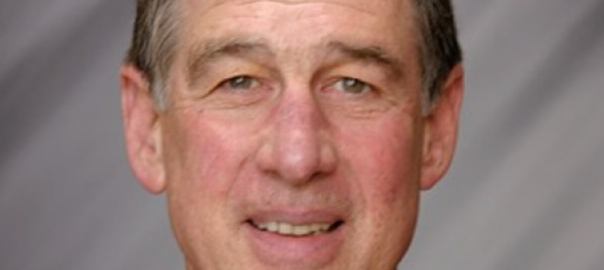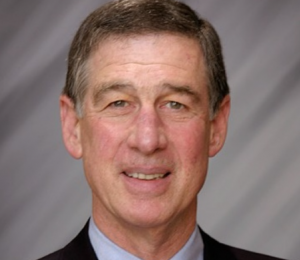
Medical Aid in Dying Can Ease Suffering for Many New Yorkers. That’s Why a Strong Majority of New York Physicians Supports It

“As one moves from the stands to the arena, the perspective on the bull changes,” so goes a Spanish proverb.
I have practiced medicine for more than 50 years. Helping to ease suffering has been my life’s work. I co-founded Hospice Buffalo more than 40 years ago to help patients who were dying, to ensure that their final days, weeks and months could be as comfortable, pain-free and fulfilling as possible.
I know we succeeded in this challenge more often than we failed, but not always, not for everyone. And as a physician, however skillful in symptom management and earnest in the supportive engagement with the patient and family, I cannot in good conscience dictate to someone else when they reach an intolerable point of suffering, when the ravages of irreversible disease demand only its endurance, often inconsistent with the values and philosophy with which one has lived. Respect for individual patient autonomy and humane decency prohibit that inexcusable paternalism.
These are some of the reasons I support the Medical Aid in Dying Act. This much-needed legislation would allow terminally ill, mentally capable New York adults to have the option to die, without further suffering, in whatever way is consistent with their own values, beliefs, and desires. Medical aid in dying is a compassionate, ethical commitment to the patient’s autonomy. It is an end-of-life-care option – in addition to palliative and hospice care – that should be available to terminally ill New Yorkers.
The easing of suffering, while promoting patient choice and autonomy, is what I’ve always tried to do. It’s what every good physician I know tries to do. It’s what professional organizations representing doctors should do. In this last regard, it’s noteworthy how New York’s two largest professional organizations representing doctors – the New York State Academy of Family Physicians (NYSAFP) and the Medical Society of the State of New York (MSSNY) – have dealt with the issue of medical aid in dying.
Historically, the NYSAFP – which represents 6,000 New York doctors – had opposed medical aid in dying. As the American experience with this practice developed in nine other states over the last twenty years, its leaders and members studied, debated, and reconsidered the issue, reviewing the accumulated data on medical aid in dying and considering the diverse views of its membership. As a result, in 2016 the NYSAFP stance shifted from opposition to neutrality on the issue, neither endorsing nor opposing it.
As more states continued to authorize medical aid in dying, after careful consideration the Academy decided in 2017 to support New York’s Medical Aid in Dying Act, writing “medical aid-in-dying laws improve overall end-of-life care for all patients. Additionally, the evidence from other states shows no increased risk for any vulnerable groups such as the disabled, elderly, poor, or uninsured.”
Historically, MSSNY also has stood in opposition to medical aid in dying. Four years ago, MSSNY – whose membership now represents less than 25 percent of New York physicians – agreed to survey its members on this end-of-life care option. Preliminary and ultimately unsupportable conclusions were presented as testimony to the Health Committee of the Assembly in 2018, from a “study” so significantly flawed it was later discredited and withdrawn. Subsequently, MSSNY’s Bioethics Committee was tasked with creating an ad hoc report on end-of-life issues, which has still yet to be seen.
At that time I said, “I am profoundly disappointed by MSSNY’s testimony. If we are to advocate for practice on the best possible evidence, I submit that overwhelming documented, validated, replicated evidence indicates overwhelming support of medical aid in dying.”
I joined other physicians and advocacy groups to conduct an independent, academically validated study of New York state physicians’ attitudes towards medical aid in dying, conducted by WebMD. Sampling from broad segments of New York physicians (not just members of MSSNY), irrefutably demonstrated strong, majority support for medical aid in dying among New York physicians, as well as among all New Yorkers.
The best traditions of the history of medicine are those which accommodate change in practice – antisepsis, vaccination, childbirth, genome research, the list goes on. Medical aid in dying falls into that category too. The decades’ demonstrations of popular and professional acceptance, as well as the absence of abuse in practice, clearly advocate for permitting medical aid in dying for those New Yorkers who decide to offer it or avail themselves of the option.
Even the American Medical Association, through its Council on Ethics and Judicial Affairs, has stated that its members may participate in authorized jurisdictions “according to the dictates of their conscience without violating their professional obligations.” Still, MSSNY continues to lobby from its position of inflexible, unmodified opposition to enabling legislation. The Society renewed its stated opposition just last month.
Sadly, after career-long membership in MSSNY, I will now relinquish it, joining many others who have done so. In good conscience, I will no longer be a part of an organization that promotes ideology over autonomy, rejecting evidence. Neither will I be part of an organization that stymies the will of a majority of the practitioners in the state.
Now my focus turns to passing the Medical Aid in Dying Act in 2021. Governor Cuomo supports it, as do a majority of New Yorkers. They are counting on our state legislators to respond to their needs and desires, knowing that together we can help ease needless suffering for so many.
Bring on the bull.
Robert Milch, M.D., is the co-founder of Hospice Buffalo and an internationally recognized palliative care provider.
